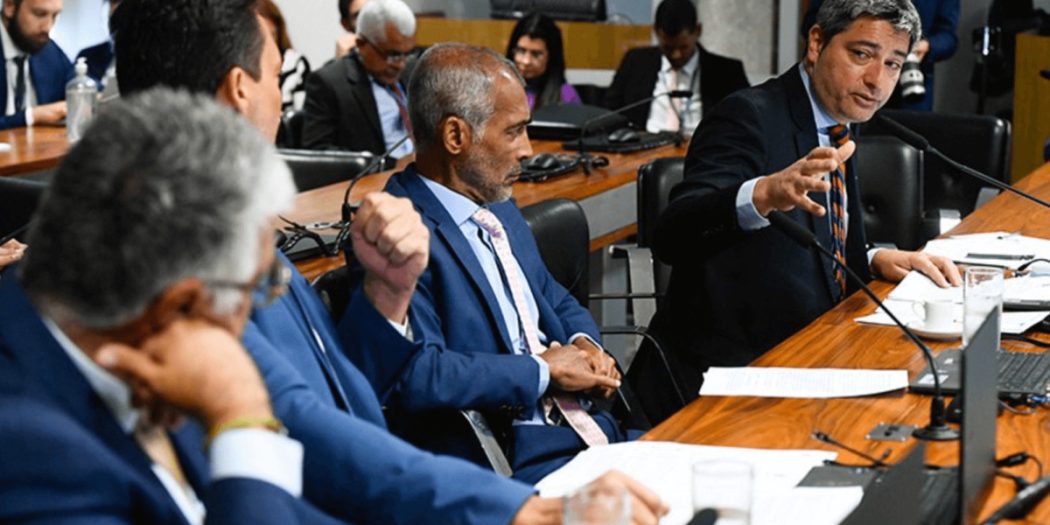
Ricardo Assis, Editor of SBC Noticias – Brasil, reports on the Senate of Brazil backing a Bill of federal rules on gambling advertising. Caution is advised, as Série A football clubs warn that the restrictions could undermine a vital revenue stream and raise concerns over how such a statute will be applied in practice…
The Commission of Sports (CEsp) of the Senate of Brazil has put forward a further review of gambling advertising rules and restrictions to be applied as a federal law.
The development follows Senators Styvenson Valentim (Podemos-RN) and Carlos Portinho (PL-RJ), who lead the assignment , settling on the terms of Bill No. 2,985/2023.
The Bill seeks to be applied separately to the Brazil Bets regime (Law No. 14,790/2023), which launched Brazil’s federal online gambling marketplace on 1 January 2025.
The Brazil Bets regime applies the advertising rules of Ordinance No. 827/2024, overseen by the Secretariat of Prizes and Betting (SPA) and the National Advertising Council (CONAR). The authorities are tasked with co-monitoring Bets advertising with regards to campaign targeting, responsible messaging, misleading content, endorsements, and excessive coverage on media platforms.
Irrespective of existing rules, the Senate commissioned the CEsp to evaluate Bets advertising due to the escalating influence of gambling sponsorships on football, concerns over youth exposure, and sports integrity being damaged by excessive gambling advertising.
Furthermore, the Senate judged that CEsp oversight was needed to close regulatory loopholes on gambling advertising and to balance commercial interests of gambling with public health standards.
Drafted by Senator Valentim and reviewed by Senator Portinho as rapporteur, the Bill seeks to establish a federal statute to uphold the enforcement of gambling advertising.
Senator Valentim had initially advocated a full prohibition of gambling advertising across Brazilian media. However Portinho’s revision pursued a restrictive yet regulated model, intended to withstand significant divisions on advertising to secure the Senate’s passage and approval.
With the Commission for Communication and Digital Law (CCDD) not yet formed, the bill will bypass its terminative vote and proceed to a full Senate plenary for deliberation.
Portinho defended the proposal as a pragmatic compromise. “We’ve tried to strike a balance. The intention was to prohibit altogether, but that would not have stood up legally or commercially.” He also confirmed that the restrictions would come into effect gradually—90 days after the law is published for most media channels, and after one year for stadium advertising.
Ordinarily, the Commission for Communication and Digital Law (CCDD) would hold terminative authority over the matter. However, as the CCDD has yet to be formally installed, senators moved to expedite the legislative process by sending the bill directly to the Senate Plenary for full deliberation. If approved by the Senate, it will proceed to the Chamber of Deputies for further scrutiny.
Senator Leila Barros (PDT-DF) endorsed this procedural acceleration and committed to lobbying Senate President Davi Alcolumbre (União-AP) to ensure the matter is brought to vote. “Just make the request, and it goes to the Plenary, and we’ll vote,” she said, affirming the chamber’s willingness to act swiftly.
However, the response from Brazilian football has been blistering. Over 50 clubs from all four tiers, including heavyweights Flamengo, Palmeiras and São Paulo, published a joint declaration condemning the bill. Serie A clubs argue the proposed framework is effectively “a ban disguised as regulation,” warning that it would trigger a R$1.6bn (circa €300m) annual loss across the sporting ecosystem and jeopardise long-term investments in football.
The clubs took particular issue with the stadium advertising ban, calling it “an existential threat” to their commercial model. Static advertising boards and uniform sponsorships have become a vital component of club revenue since the liberalisation of betting laws.
The Bill’s progression to plenary will force the Senate to weigh public health against economic necessity. Senators must now decide whether to enshrine Portinho’s substitute into law, setting a national precedent on the limits of gambling influence in sport and media. The vote, when held, will offer a clear signal of the legislature’s appetite for intervention in Brazil’s newly regulated gambling marketplace.